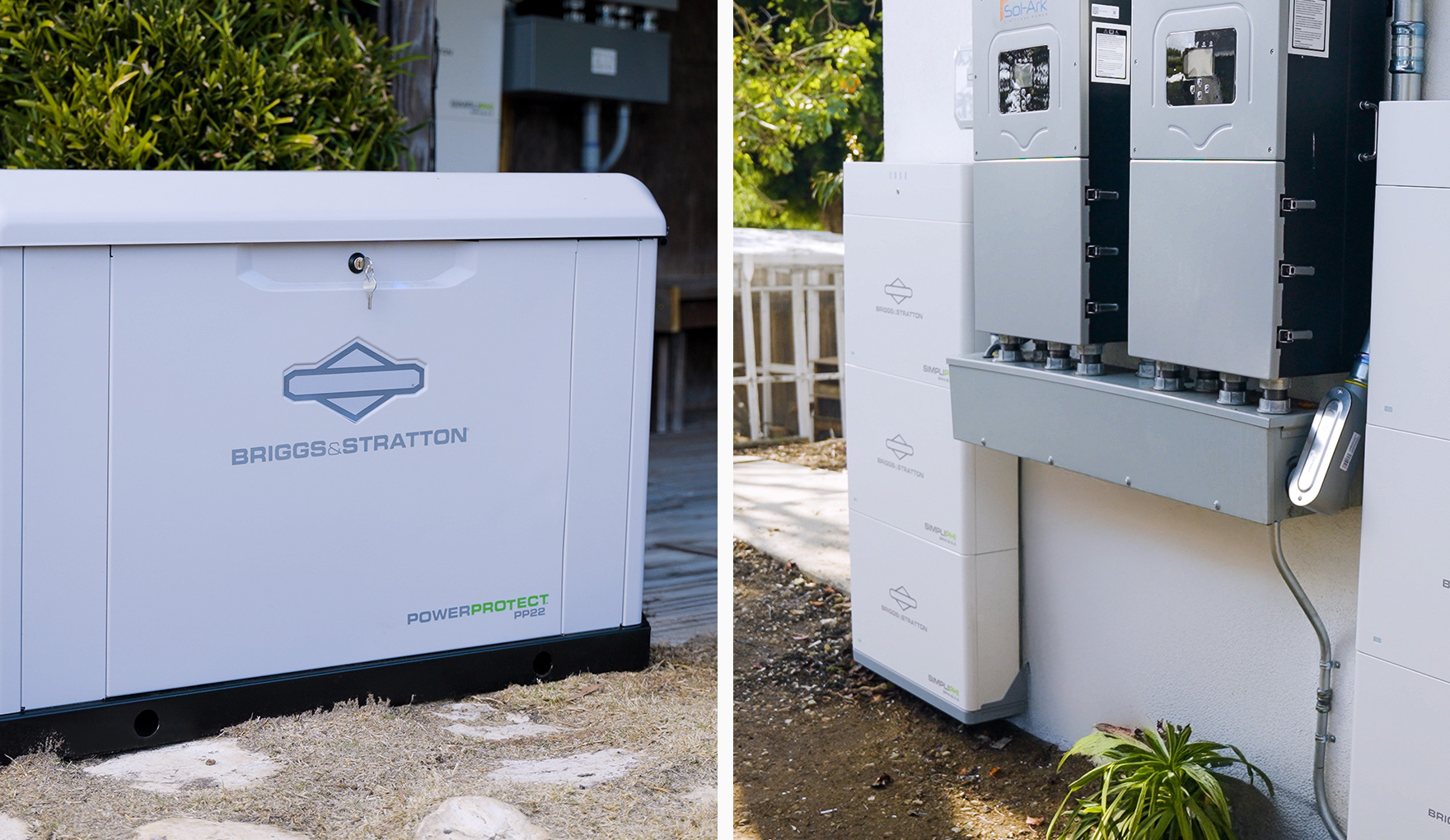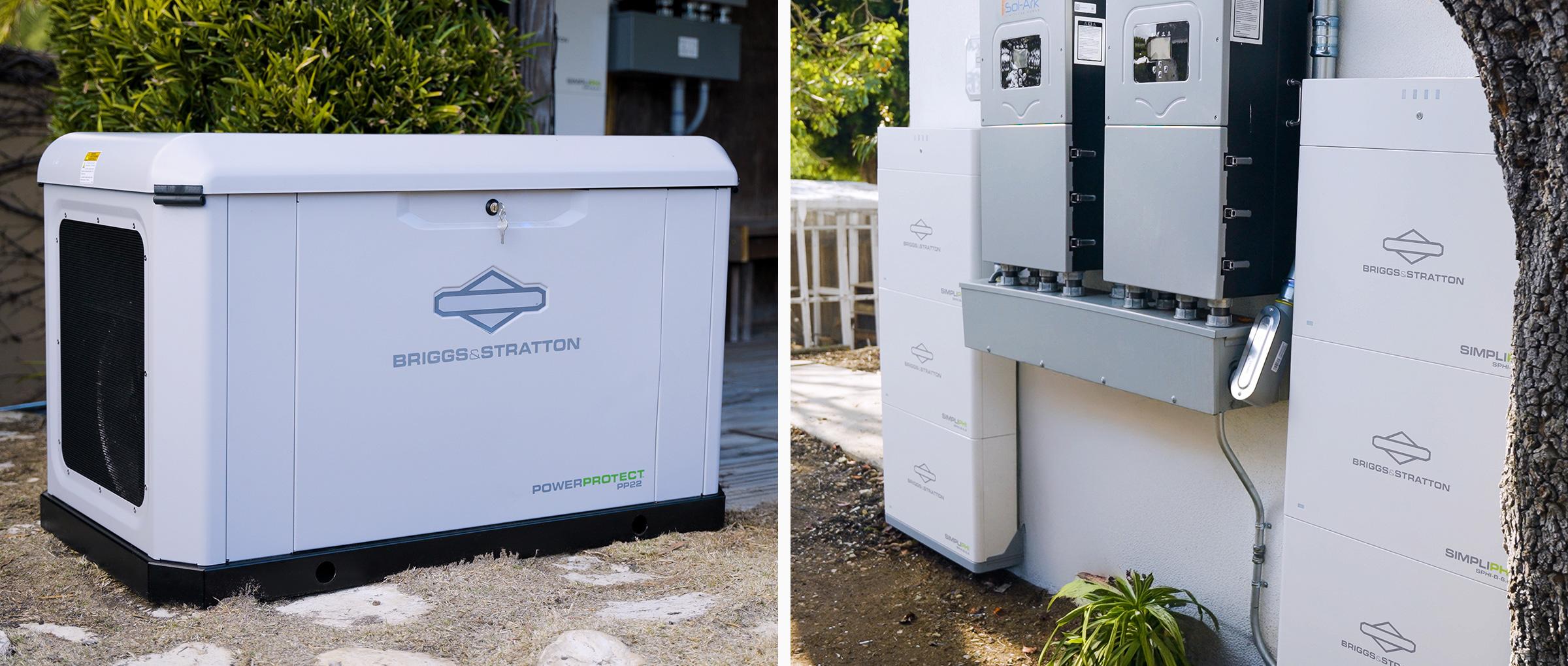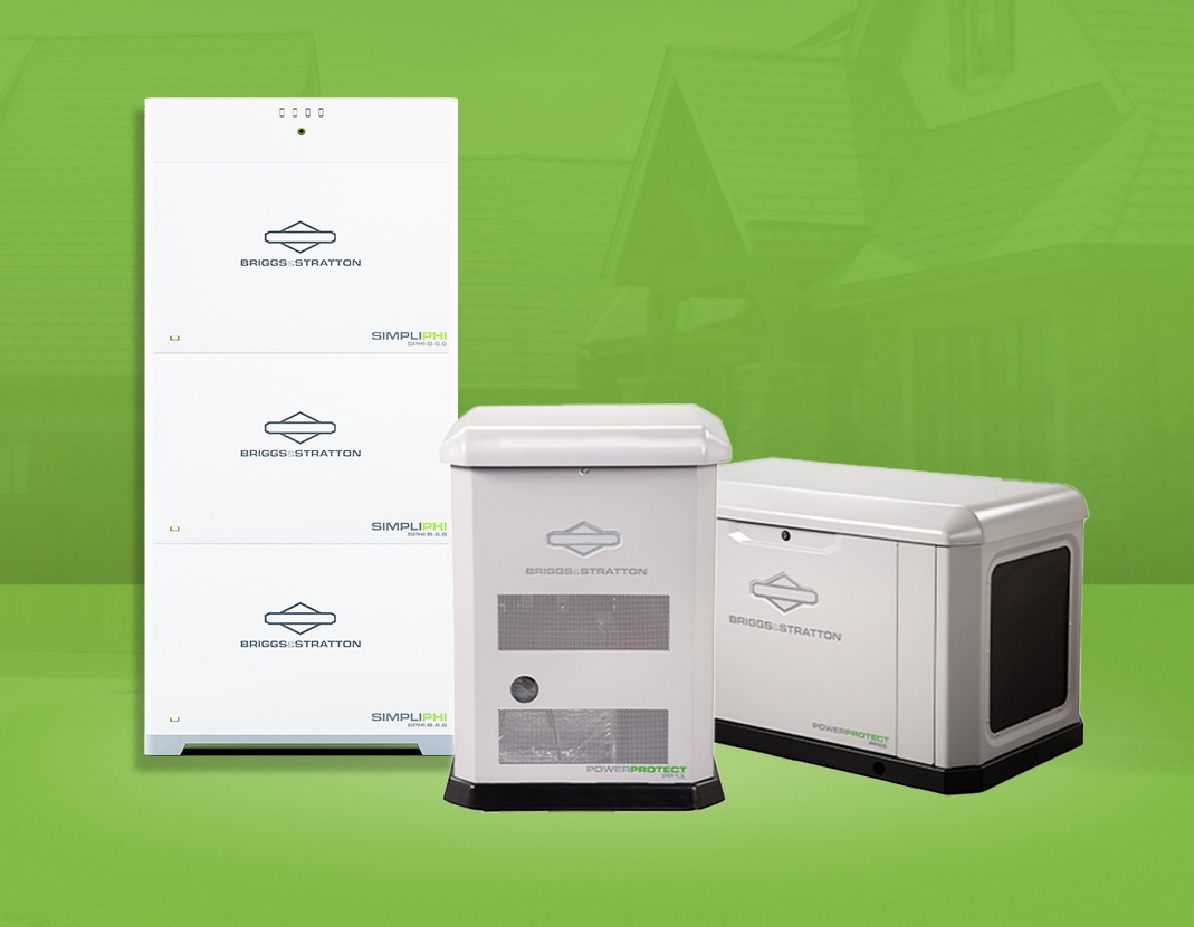When the lights go out, homeowners seek reliable home power backup solutions. For years, fuel-powered generators have been the standard, providing robust power. However, the landscape of standby power systems has expanded to include advanced battery stand-by systems, offering a different set of advantages. This article compares these two primary options, highlighting their unique benefits and exploring how they can work together to provide optimal residential energy security.
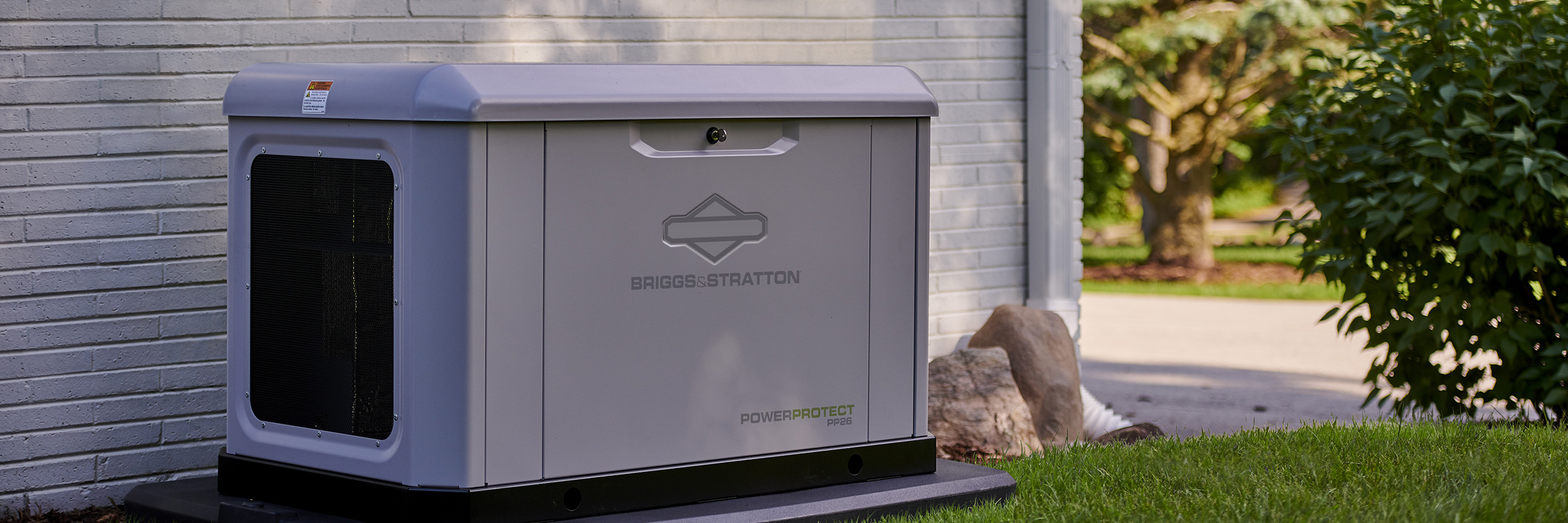
The Traditional Choice: Fuel-Powered Generators
Fuel-powered generators, including both portable generators and permanently installed standby units, create electricity by burning fuels like natural gas or propane. They are valued for their ability to deliver substantial power output and can run for extended periods, or even indefinitely, as long as a consistent fuel supply is maintained. This makes them a strong solution for powering an entire home during prolonged outages, even those lasting days.
Factors to consider with generators include:
Continuous Power: They can provide consistent, high-wattage power for an entire home, including multiple air conditioning units and other large appliances, for as long as fuel is available.
Fuel Source: Natural gas models tap into an existing utility line, offering an unlimited supply. Propane models use on-site tanks, providing a reliable fuel source where natural gas isn't available.
Noise Levels: While varying by model, modern standby generators, like the Briggs & Stratton® PowerProtect™ series, are engineered for quieter operation. Many run at decibel levels comparable to a central air conditioner (around 64-68 dBA at 20-25 feet), significantly quieter than older portable units.
Maintenance: Like any engine, they require routine maintenance, including oil changes and periodic servicing, to ensure optimal performance.

The Modern Alternative: Whole-Home Battery Storage
Whole-home battery storage systems represent a clean and quiet approach to emergency power solutions. These systems store electricity from the utility grid or renewable sources like solar panels, and deploy it instantly and silently during an outage. They function as a true uninterruptible power supply (UPS), offering seamless transition and zero direct emissions. Briggs & Stratton® SimpliPHI® 6.6 Home Battery Systems, for instance, are leading this modern approach with their advanced lithium ferro phosphate (LFP) chemistry.
Key advantages include:
Zero Emissions: Battery systems produce no direct emissions, exhaust or pollutants during operation, making them a truly clean energy backup that significantly reduces your carbon footprint.
Silent Operation: With no moving parts that combust fuel, battery systems operate virtually silently, ensuring peace and quiet during an outage.
Low Maintenance: They generally require significantly less routine maintenance than generators, primarily involving software updates and occasional checks.
Renewable Integration: Batteries are designed to integrate seamlessly with solar panels, allowing you to capture, store and use clean, self-generated power, enhancing energy independence.
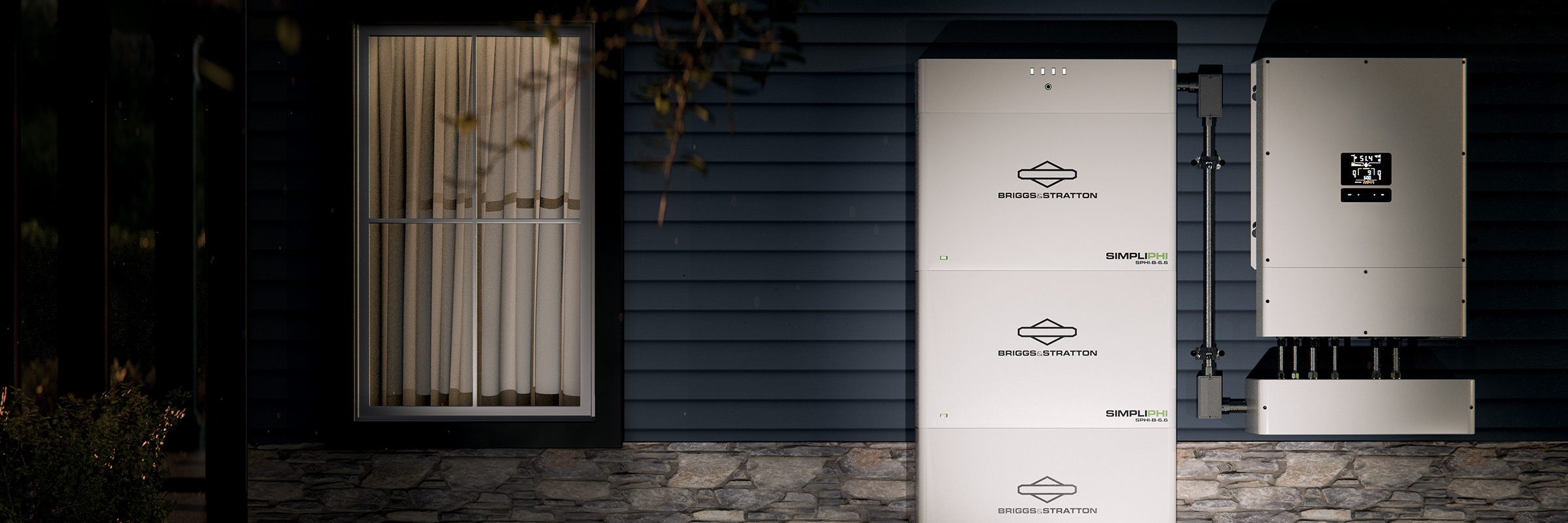
Comparing the Solutions: Key Differences and Complementary Strengths
While both options provide crucial power outage protection, their operational strengths cater to different priorities:
Power Output and Run Time: Generators typically offer higher power output and can run indefinitely with a fuel supply, excelling at powering entire large homes through multi-day outages. Battery systems have a finite storage capacity, though they are scalable (the SimpliPHI 6.6 system can scale up to 119.7 kilowatt-hours). When paired with solar, batteries can recharge daily, offering extended resilience during sunny periods.
Environmental Impact: Battery systems offer zero emissions backup during operation. Modern generators, while still using fossil fuels, are engineered for improved fuel efficiency and reduced emissions compared to older models.
Cost Considerations: The initial investment for both systems varies widely. While some generator configurations might have a lower upfront cost, battery systems can offer long-term utility bill savings through smart energy management (e.g., time-of-use optimization) and may qualify for federal like the Investment Tax Credit (ITC), significantly offsetting initial costs over time. Generators have ongoing fuel and maintenance costs.
Installation & Flexibility: Both require professional installation. Generators need specific outdoor placement for ventilation and noise. Battery systems, due to their silent and emission-free operation, offer more flexible installation options, including indoors or outdoors.
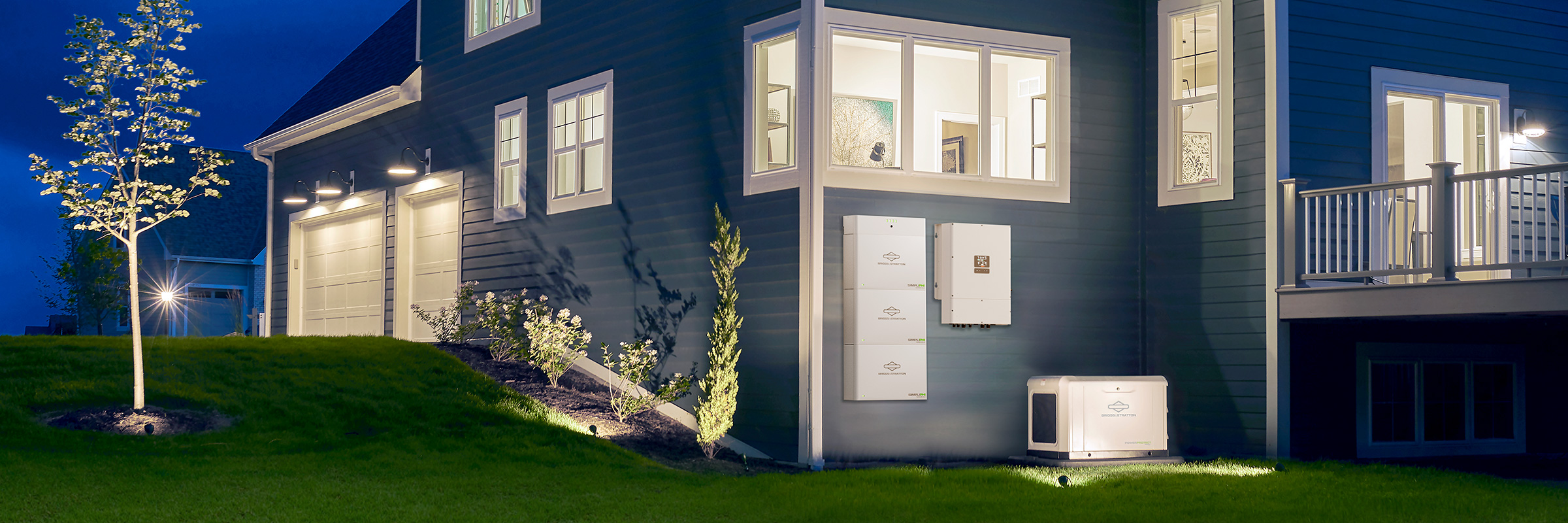
The Power of Combination: Hybrid Solutions
For ultimate residential energy security and off-grid energy options, many homeowners are now opting for a hybrid approach, combining the strengths of both battery storage and a standby generator. This strategy leverages the best of both worlds:
Eco-Friendly First Response: The battery system provides instant, silent, zero emissions backup for typical short outages or essential needs, often charged by solar.
Extended Resilience: If an outage prolongs and the battery depletes, the standby generator seamlessly activates as a secondary power source, ensuring uninterrupted operation for days or weeks. The generator's runtime is minimized, reducing fuel consumption and emissions.
This sustainable power solution provides unparalleled peace of mind, knowing you have versatile backup power tailored to any scenario.
Choosing Your Home Power Backup Solution
Ultimately, the best home power backup solution depends on your specific needs, budget and environmental priorities. Whether you prioritize clean energy backup and silent operation with a Briggs & Stratton SimpliPHI battery system, the long-duration power of a Briggs & Stratton PowerProtect™ generator, or the comprehensive resilience of a hybrid system, understanding the unique benefits of each option is key to ensuring your home stays powered through any outage.


